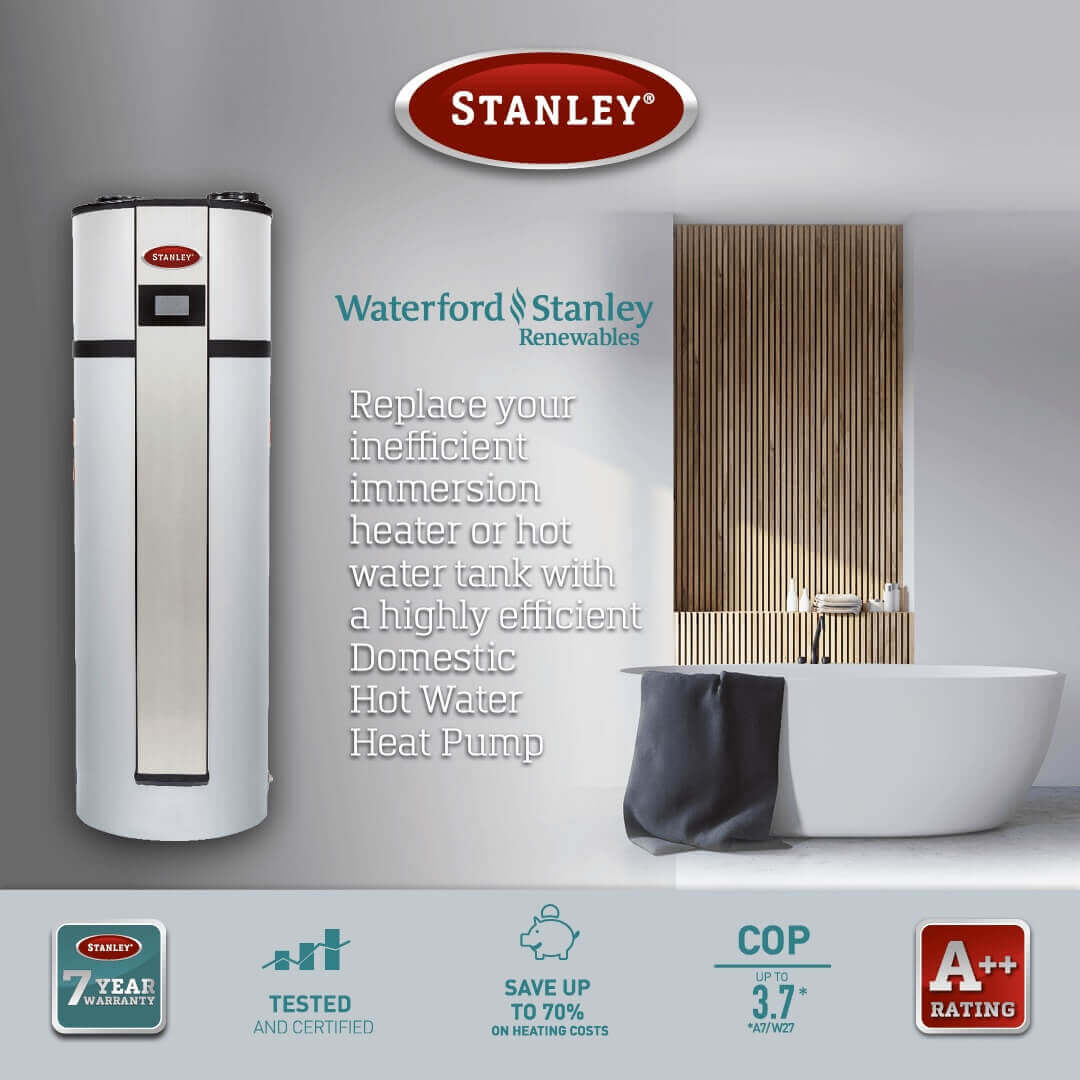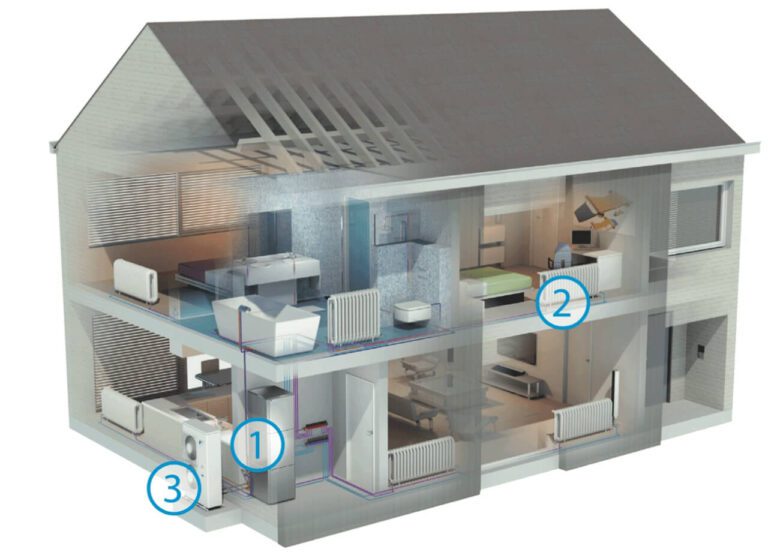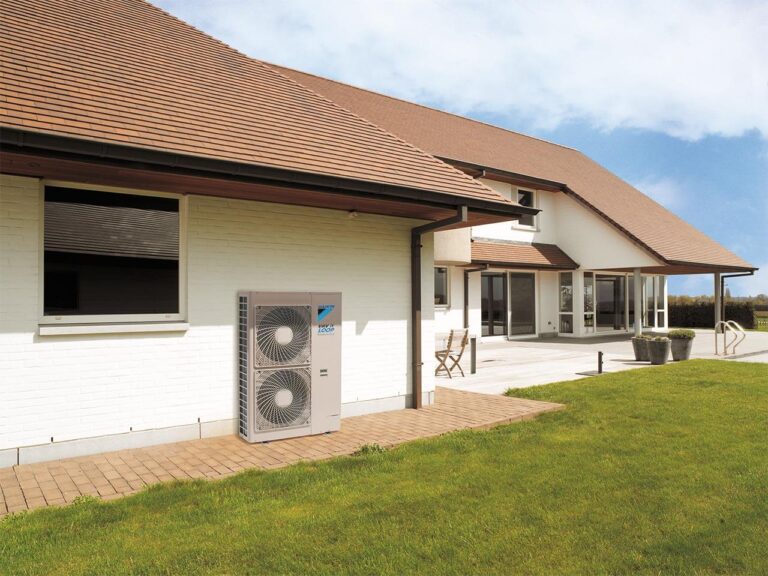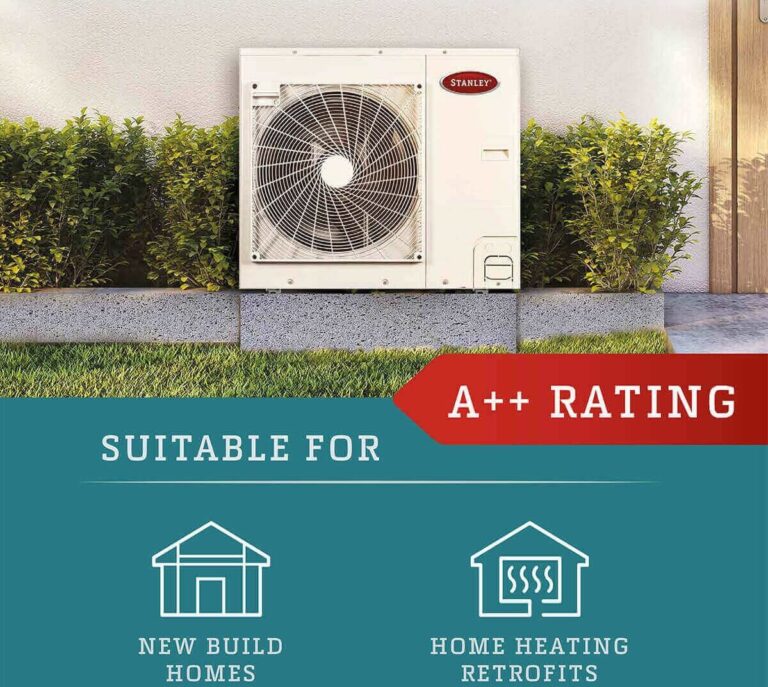Benefits of Heat Pumps for Renewable Energy
Heat pumps are a key technology in the realm of renewable energy, providing an efficient and environmentally friendly way to generate heating and cooling for residential, commercial, and industrial applications. Here’s an overview of how heat pumps work and their role in renewable energy:
How Heat Pumps Work:
- Basic Principle:
- Heat pumps operate on the principle of moving heat from a lower temperature to a higher temperature using a refrigeration cycle.
- They can extract heat from the air, water, or the ground, depending on the type of heat pump.
- Components:
- Evaporator: Absorbs heat from the source (air, water, or ground).
- Compressor: Raises the temperature and pressure of the refrigerant.
- Condenser: Releases heat to the heating system (air or water distribution).
- Expansion Valve: Lowers the pressure and temperature of the refrigerant to start the cycle again.
- Types of Heat Pumps:
- Air Source Heat Pumps (ASHP): Extract heat from the outdoor air.
- Ground Source Heat Pumps (GSHP): Extract heat from the ground through buried pipes.
- Water Source Heat Pumps (WSHP): Extract heat from a water source, like a pond or well.
Renewable Energy Integration:
- Electricity Source:
- Heat pumps typically run on electricity. To make the system truly renewable, the electricity source should come from renewable energy, such as solar, wind, or hydropower.
- Energy Efficiency:
- Heat pumps are known for their high energy efficiency. They can produce more heating or cooling energy than the electrical energy they consume, making them an effective way to utilize renewable energy.
- Reduced Carbon Footprint:
- Using heat pumps powered by renewable electricity significantly reduces carbon emissions compared to traditional heating systems that rely on fossil fuels.
- Smart Grid Integration:
- Smart grid technologies can enhance the efficiency of heat pump operation by optimizing their usage during periods of high renewable energy availability.
- Hybrid Systems:
- Some installations combine heat pumps with other renewable technologies like solar thermal collectors to create hybrid systems, providing more flexibility and reliability.
Benefits of Heat Pumps for Renewable Energy:
- Versatility:
- Heat pumps can provide both heating and cooling, making them versatile for various climate control needs.
- Reduced Operating Costs:
- Although the initial installation cost can be higher, heat pumps generally have lower operating costs over their lifespan compared to traditional heating systems.
- Long Lifespan:
- Well-maintained heat pump systems can have a long lifespan, contributing to sustained renewable energy utilization.
- Government Incentives:
- In many regions, there are government incentives and subsidies to encourage the installation of renewable energy systems, including heat pumps.
By integrating heat pumps with renewable energy sources and optimising their operation, it is possible to create sustainable and efficient heating and cooling solutions that contribute to reducing the carbon footprint of buildings and industries.






